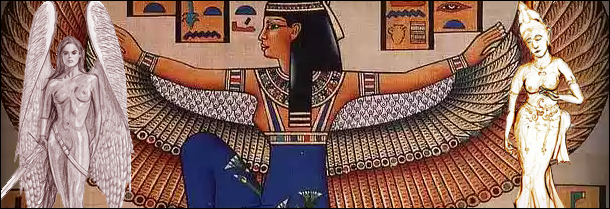KITUNGUU swaumu ni jamii ya vitunguu ambayo kwa kitaalamu huitwa ‘Allium sativum’.
Jamii hiyo ilianza kutumika katika mabara mbalimbali duniani hususan Asia, Afrika na Ulaya takriban miaka 6,000 iliyopita huku matumizi makuu kwa kipindi hicho yakiwa ni viungo katika mboga na tiba.
Kitunguu swaumu kimetajwa kwenye vitabu mbalimbali vya dini vikielezea faida zake katika kutibu maradhi mbalimbali yasababishwayo na bakteria, matatizo katika mapafu, matatizo katika mfumo wa umeng’enyaji chakula, na matatizo ya kuishiwa nguvu.
Historia inaonesha kuwa, kitunguu swaumu kilianza kutumika China mwaka 510 KK pia kilitumiwa na wanajeshi wa Ugiriki na Roma.
Aidha, wasafiri wa vyombo vya baharini na vijijini pamoja na wakulima barani Afrika walivitumia sana kama kinga ya magonjwa mbalimbali.
Mwaka 1858, mtafiti na mwanasayansi, Louis Pasteur, aligundua uwezo wa kitunguu swaumu katika kuua vimelea mbalimbali vinavyosababisha magonjwa, hivyo vikaanza kutumika kama dawa ya kusafishia vidonda na kuzuia kidonda ndugu hasa zama za Vita ya Kwanza na ya Pili ya Dunia.
Pia, mpaka sasa zipo dawa kadhaa zilizotengenezwa kwa kutumia jamii hii ya vitunguu swaumu ikiwamo dawa ya kusafisha mdomo ingawa watumiaji wake wengi huilalamikia dawa hiyo kwa sababu ya harufu mbaya.
Makala hii ina lengo la kukupa ufahamu wa maajabu ya kitunguu swaumu mbali na kutumika kama kiungo cha chakula lakini pia kinatumika kama tiba.
Faida za kitunguu swaumu
DK. Henry Mayala anaeleza kuwa katika tafiti mbalimbali zilizowahi kufanywa kitunguu swaumu kimeonekana kuwa na uwezo wa kutibu maambukizi ya bakteria, fangasi na virusi vya aina mbalimbali.
Aidha, anasema kuwa husaidia kuzuia magonjwa ya moyo ikiwamo kuondoa lijamu katika mishipa ya damu hivyo kusaidia katika kurekebisha shinikizo la damu.
Faida nyingine za vitunguu swaumu ni pamoja na kutibu saratani ikiwamo saratani ya tumbo na utumbo mkubwa.
Tafiti zinaonesha kuna idadi ndogo ya wagonjwa wa saratani katika nchi ambazo wakazi wake wana utamaduni wa kutumia kitunguu swaumu kwa wingi.
Kitunguu swaumu husaidia kudhibiti kiwango cha sukari katika damu, hata hivyo inashauriwa kwamba wagonjwa wa kisukari wanaotumia sindano za insulin wasitumie kitunguu swaumu kwa wingi mpaka watakaposhauriwa na daktari.
Pia huzuia kusanyiko la chembe sahani zinazosababisha kuganda kwa damu (platelet aggregation) Husaidia ufyonzwaji wa thiamin, hivyo kusaidia kuepusha mwili na ugonjwa wa beriberi.
Kitunguu swaumu kina kiasi kikubwa cha vitamini C ambayo husaidia kuzuia ugonjwa wa kiseyeye.
Aidha, hutumika kutibu magonjwa nyemelezi kama toxoplasmosis, hasa kwa watu wenye upungufu wa kinga mwilini.
Kitabu cha Scince of the natural healing kilichoandikwa na Dk. Jethro Kloos ambacho nimekisoma kinaeleza namna kitunguu swaumu kinavyoweza kutibu kifaduro, kikohozi cha kawaida na hata baridi yabisi kwa kula punje tatu kila siku na anaeleza kuwa kwasababu kitunguu hicho kina manufaa ya ziada ndani ya mwili anashauri utumiaji wake uwe wa kudumu.
Matumizi ya kitunguu swaumu yanasaidia katika kupunguza kusanyiko la lijamu (cholesterol) pamoja na mafuta yasiyofaa mwilini katika mishipa ya damu.
Aidha, mwaka 2007 Shirika la Utangazaji la Uingereza (BBC) liliripoti matumizi ya kitunguu swaumu katika kusaidia kumkinga mtumiaji dhidi ya aina fulani ya mafua iliyosababishwa na virusi.
Mwaka 2010, ulifanyika utafiti mwingine ambao ulijumuisha wagonjwa 50 wenye shinikizo la damu sugu ambalo lilikuwa ni vigumu kudhibitiwa hata kwa matibabu yaliyozoeleka ya dawa na njia nyingine.
Kama njia ya kuchunguza ufanisi wa kitunguu swaumu katika kutibu shinikizo la damu, baadhi ya wagonjwa hao walipewa kitunguu swaumu wakati wengine walipewa dawa isiyohusika na matibabu ya shinikizo la damu lakini ilionekana kuwa wale waliopewa kitunguu swaumu kama dawa ya shinikizo la damu walionesha maendeleo mazuri kwa kuweza kushusha kiwango cha shinikizo la damu tofauti na wale ambao hawakutumia.
Siri ya kitunguu swaumu
Sifa kuu zinazokifanya kitunguu swaumu kuwa na uwezo na faida nyingi ni kule kuwa kwake na viasili kadhaa (ingredients) ambavyo vinafanya kazi tofauti tofauti.
Uwezo wake wa kiutendaji unatokana na kuwa na uwezo wa kusababisha kutanuka kwa mishipa ya damu kwa kubadilisha polysulfides zilizopo ndani yake kuwa hydrogen sulfides kwenye seli nyekundu za damu.
Husaidia udhibiti wa kiwango cha sukari mwilini kwa kushusha kiwango cha kemikali ya homocystine na kupunguza madhara ya kisukari.
Kama vitapondwa pondwa vizuri, vitunguu swaumu hutoa kemikali iitwayo Allicin ambayo ni dawa dhidi ya bateria, na phytoncide ambayo huua fangasi wa aina mbalimbali.
Harufu mbaya ya kitunguuu swaumu hutokana na gesi aina ya hydrogen sulfide ambayo inatolewa baada ya kuvila.
Madhara ya vitunguu swaumu
Katika kila jema, baya halikosekani, ukiacha faida zake kitunguu swaumu pia kina hasara na madhara mbalimbali kwa mtumiaji ikiwamo ni harufu mbaya mdomoni, ambayo hutokana na kemikali ya AMS (allyl methyl sulfide), harufu mbaya hii yaweza kupunguzwa kwa kunywa maziwa au kunywa maji mengi.
Kwa baadhi ya watumiaji, kinaweza kuwaletea mzio au mcharuko mwilini, kichefuchefu, kutapika na hata kuharisha.
Huweza pia kusababisha hatari ya kuvuja damu, kwa sababu huzuia kazi ya seli sahani (platelets) zenye kusaidia kuganda kwa damu kushindwa kufanya kazi yake vizuri, hususan kwa mama wajawazito, baada ya upasuaji au mara baada ya kujifungua.
Kitunguu hicho pia huingiliana katika utendaji kazi wake na dawa kadhaa kama vile warfarin, antiplatelets, saquinavir, dawa za shinikizo la damu kwa ujumla hasa calcium channel blockers na antibiotics za jamii ya quinolone kama vile ciproflaxacillin.
Aidha, inaelezwa kitunguu swaumu kina madhara kwa wanyama jamii ya paka na mbwa
.jpg)



 NINI CHANZO CHA HARUFU MBAYA YA KINYWA?
NINI CHANZO CHA HARUFU MBAYA YA KINYWA?